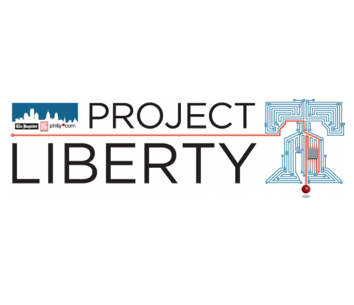Like the broader media industry, there isn’t certainty about the future of Project Liberty, the startup incubator housed by the parent company of Philly.com since its launch in 2011.
Its third class of startups — the final as part of an initial $250,000 grant from the John S. & James L. Knight Foundation — are in the tail end of their tenure at the new Market East newsroom of Interstate General Media, which also publishes the Inquirer and the Philadelphia Daily News.
Project Liberty organizers are awaiting a renewal of the grant and expect to seek new applicants next month, but no final word has landed.
As the program has worked thus far, no money or equity exchanged hands between IGM and the startups. Instead, the incubator, one leg of a digital strategy shepherded by former publisher Greg Osberg that also included an abortive tablet-subscription effort, is meant to be a collaborative one:
- IGM has housed the companies and was charged with giving them access to newspaper staff
- Ben Franklin Technology Partners/SEP is the nonprofit that actually received and managed the funding and has, in some cases, invested in some of the companies.
- DreamIt Ventures is said to offer mentorship and strategy.
- Drexel University has connected the company to co-op technical interns.
As its first two-year, three-class cycle closes, Project Liberty, which less than a year ago brought on the earnest Cory Donovan, a former small-town Virginia tech council president, to serve part-time as the program’s first project manager, opened its doors for Philly Tech Week in an event titled, perhaps tellingly, “The Transformation of a Digital Incubator.”
The event, featuring two panels moderated by Terry Hicks, vice president of the investment group for Ben Franklin, was something of a followup to a carefully orchestrated affair in the old Inquirer building during the 2011 Tech Week.
Despite the criticisms that followed that first class — some of which have been addressed for subsequent startups — that April 2011 event seemed too staged, suggesting success. At one point in that event, Hicks, who also moderated then, asked a Knight Foundation representative if he thought the program had received more attention nationally or internationally.
If last week’s 2013 version was a bit more grounded, it didn’t fully address what the future looked like for the program, with no committed funding and an always uncertain ownership situation.
But it’s clear the effort to put small media startups in the same newsroom as large news organizations that can be valuable first clients is valuable — as seen by the New York Times following the idea — and Project Liberty is a much improved experience from its first go-round by all accounts.
Rumble, a white-label mobile news app service that was part of the second Project Liberty class, got direct access to sales and IT staff during its time there, said CEO Al Azoulay during a conversation last year while still a part of the incubator. (Earlier this year, Rumble received follow-on funding from BFTP, helped no doubt by its stint in the newsroom.)
That improvement seemed to be echoed at last week’s event.
One of the night’s two panels featured the CEOs of the incubator’s current class — A View From My Seat, a community driven photo sharing app for sports and concert fans, TuvaLabs, which helps students learn math through the news, and tapCLIQ, a user engagement and advertising platform for mobile devices.
Missy Lehto of A View From My Seat, Chirantan Bhatt of tapCLIQ and Harshil Parikh of TuvaLabs, all CEO’s of their startups, shared their experiences working with Interstate General Media.
“From an employee perspective, we have progressed further. From a customer count prospective, we have progressed further, so for a small company, it seems it’s an all around progress that we’ve been achieving, and that’s been very transformative for us as a business and for me individually to be a part of it,” Bhatt said.

Omar Mencin, manager of special projects for Ben Franklin’s investment group, and Donovan, the incubator manager, also answered questions about the benefits of the Digital Incubator and its progress.
“We’ve gotten better about helping understand the needs of the newspaper, the needs of the startups, and how to service those needs and facilitate the dialogue between the two,” Donovan said.
If that’s the case, the hope then is that outside funding or internal IGM support carries Project Liberty further. If so, the application process would be due to be opened in May.







